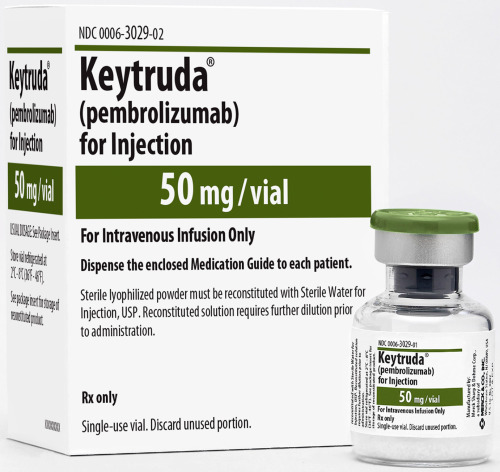Merck's Keytruda fails in gastric cancer trial

When a pharma company says it is “providing an update” on a clinical trial the news is nearly always bad – and this week it was Merck & Co’s turn to issue a euphemistic press statement as its Keytruda cancer immunotherapy failed in a pivotal gastric cancer trial.
The company said the pivotal phase 3 Keynote-061 trial failed to meet its endpoint in testing Keytruda as a second-line treatment for patients with advanced gastric or gastroesophageal junction (GEJ) adenocarcinoma.
The study randomised 592 patients to receive Keytruda (200 mg fixed dose every three weeks) or paclitaxel on days one, eight, and 15 of each 28-day cycle.
The study was designed to first evaluate efficacy in patients whose tumours expressed PD-L1. If efficacy signals were observed and progression-free survival and overall survival were positive in this subset of patients, further analysis was planned in the overall population.
But it missed the primary endpoint of overall survival in patients whose tumours expressed the PD-L1 antigen.
The trial also failed against the progression-free survival measure in the PD-L1 population – which can be easier to achieve and is sometimes used in regulatory filings.
There were no new safety signals and safety profile was consistent with that observed in previous studies.
Merck & Co is busy trying to find new uses for Keytruda, which has proved to be a highly versatile drug and is now licensed for use in indications ranging from lung cancer to non-Hodgkin lymphoma.
It is competing in an increasingly crowded cancer immunotherapy market with Bristol-Myers Squibb’s rival PD-1 drug Opdivo (nivolumab) and a group of other cancer immunotherapies manufactured companies including Roche, Pfizer and AstraZeneca.
Keytruda is already approved since September in third line for previously treated patients with recurrent locally advanced or metastatic gastric or gastroesophageal junction cancer whose tumours test positively for PD-L1.
Merck said it will continue with a trial testing Keytruda as a monotherapy or in combination with chemotherapy as first-line treatment for patients with PD-L1 positive advanced gastric or gastroesophageal junction cancer, and with KEYNOTE-585, a phase 3 trial studying Keytruda in combination with chemotherapy in a neoadjuvant/adjuvant setting.












